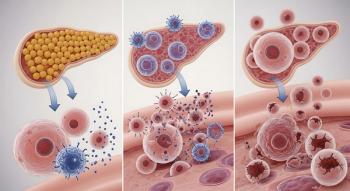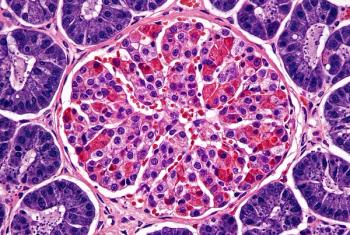
News|Articles|June 3, 2024
4 Things to Know about Type 1 Diabetes
Author(s)MHE Staff
Type 1 diabetes is an autoimmune disease that affects more than 2 million Americans.
Advertisement
- Type 1 diabetes is an autoimmune disease. In type 1 diabetes, the pancreas does not make insulin. In 1974, two studies published
here andhere in The Lancet highlighted research that showed how type-1 diabetes is associated with the development of antibodies directed against insulin-producing beta cells in the pancreas. - Type 1 diabetes has three stages: stage 1, where patients are presymptomatic with normal blood glucose levels; stage 2, where patients are presymptomatic but have developed glucose intolerance; and stage 3, where patients develop symptoms that include increased hunger and thirst, blurry vision, fatigue, and diabetic ketoacidosis, a complication in which acids build up in the blood.
- In 2021, 38.4 million Americans had diabetes. Of these, 2 million had type 1 diabetes, including about 304,000 children,
according to the CDC . About 1.7 million adults aged 20 years and older reported having type 1 diabetes and are using insulin. Between 2002 and 2018, the overall incidence of type 1 diabetes increased significantly. Non-Hispanic Asian or Pacific Islander children and adolescents has the largest significant increases in incidence of type 1 diabetes but non-Hispanic White children and adolescents had the highest overall incidence of type diabetes - A large retrospective study
published in the Journal of Managed Care & Specialty Pharmacy in 2020 of pediatric and adult patients with type 1 diabetes showed that overall medical costs averaged about $1,500 per patient per month, and diabetes-related costs totaled almost $800 per patient per month. Pharmacy costs contributed to more than half of the monthly diabetes related costs.
Newsletter
Get the latest industry news, event updates, and more from Managed healthcare Executive.
Advertisement
Latest CME
Advertisement
Advertisement
Trending on Managed Healthcare Executive
1
7 things you need to know about the PBM reforms signed into law this week
2
PBM reform. It has finally happened
3
TrumpRx launches; some experts question its long-term value
4
FDA issues draft guidance on MRD and complete response as primary endpoints for accelerated multiple myeloma drug approvals
5

























